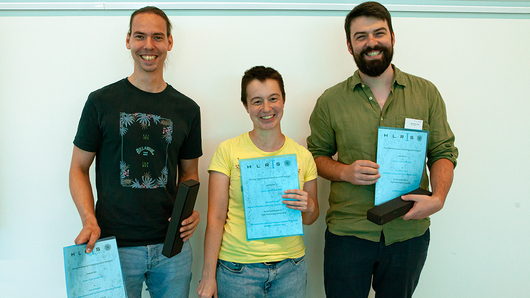High-Performance Computing Center Stuttgart

In 24 talks and a poster session, visitors learned about advanced research in fields such as computational fluid dynamics, climate research, computer science, chemistry and materials science, bioinformatics, structural mechanics, and physics, among others. In addition to covering approaches using traditional HPC simulation methods, several talks and posters also highlighted new applications that combine machine learning with traditional simulation methods.
At the conclusion of the meeting, Prof. Dr. Thomas Ludwig (German Climate Research Center), chair of the HLRS steering committee, announced the winners of the 2023 HLRS Golden Spike Awards. Presented every year at the Results and Review Workshop, the awards recognize excellence in computational research and the use of high-performance computing. Representing their respective projects, this year’s Golden Spike Award winners were:
Pascal Mossier (Institute for Aerodynamics and Gas Dynamics, University of Stuttgart)
A High-Order Framework for Compressible Droplet Dynamics
Theresa Pollinger (Institute for Parallel and Distributed Systems, University of Stuttgart)
The Sparse Grid Combination Technique for Higher-Dimensional Simulations at Extreme Scales
Maximilian Jacobi (Institute for Nuclear Physics, Technical University of Darmstadt)
Neutron Star Mergers: From Nuclei to Cosmic Explosions